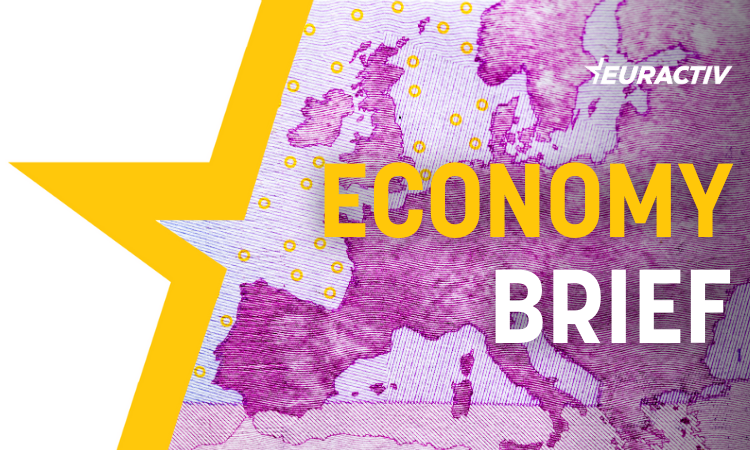
Europe’s insurance sector became the latest to join the chorus of EU interest groups calling on the next Commission to foster a more pro-business regulatory framework – first and foremost, by following through with its pledge to slash reporting obligations by 25%.
Insurance Europe, the umbrella group for insurance and re-insurance firms across the bloc, published its manifesto for the next five years on Thursday (11 July), listing its top priorities for “a more prosperous, resilient, and competitive European Union”.
One of the core recommendations for policymakers is to shift to “a new approach to EU regulation that allows, not stifles, innovation, global competitiveness and digitalisation”.
This would include broadening the pool of private investors across the bloc by increasing “retail investment, including through insurance savings and retirement products, and diversify[ing] funding sources for EU businesses,” and also by making it easier for insurers to invest in them.
The most relevant positive changes, though, should come from the Commission “deliver[ing] on its commitment to reduce the reporting burden” for firms by one quarter, the group said – something a plethora of other business groups, as well as national politicians, have been calling for.
“There were 12 legislative texts at EU level impacting insurers in 2012, and there will soon be about 70,” the group said, adding that “the complexity and level of detail has also increased dramatically”.
“Regulation on sustainability reporting, digital issues, solvency requirements, conduct of business, due diligence and much more, all tend to be more onerous and expensive than those applied to international competitors,” the association warned.
Reporting demands lead to higher costs “not only for business but also indirectly for consumers”, it argued, and “reduce the ability to innovate and grow”, ultimately damaging “Europe’s global competitiveness”.
For the Commission’s pledge “to result in any material benefit, there must be a serious commitment to real changes,” it said.
The insurance sector, the group said, “is captured in a multitude of sector-specific regulations. For this reason, regulation should not be produced in a ‘silo’ that does not take account existing laws in all areas affected by it”.
Notably, the group also called for setting up a new “insurance expertise centre” in the European Commission, “serving as an insurance knowledge hub across Directorate-Generals”.
This hub would ensure “that due consideration is given to all risks involved in any new initiative,” and thus that “policymaking supports, and does not compromise, the availability and affordability of insurance”.
Economy News Weekly Roundup
The European Commission urges private creditors to “swiftly” reach an agreement with the Ukrainian government to avoid Kyiv defaulting on billions of dollars in debt at the start of next month. The EU executive made its appeal ahead of the expiry on 1 August of a two-year moratorium on Ukrainian interest payments on private creditors’ loans, which had been agreed shortly after Russia’s full-scale invasion in February 2022. The deal is worth roughly 15% of Kyiv’s annual GDP, or $20 billion. “It is key that Ukraine and international bondholders swiftly find an equitable agreement on the parameters of the restructuring, which is essential to the objective of restoring Ukraine’s debt sustainability,” a Commission spokesperson told Euractiv on Thursday (11 July). Read more.
German plans to downsize national supply chain rules at odds with EU law, experts warn. In one of the points of its “growth initiative” – part of a political deal for the 2025 budget agreed upon last week – the governing coalition of the Social Democrats, the liberal FDP, and the Greens agreed to effectively reduce the scope of the national Supply Chain Due Diligence Act (LkSG) – by replacing it through the early introduction of the EU Corporate Sustainability Due Diligence Directive (CSDDD), which is supposed to be applied from 2027. Ulrich Hagel, a German lawyer who co-authored several articles and a book on this issue, told Euractiv that bringing forward the application of the CSDDD by two years, along with using it to scale down the scope of existing domestic rules, could breach an important provision of the EU directive. Read more.
Tariffs on China-made electric vehicles (EVs) could boost Chinese carmakers’ efforts to localise production in the EU, says Hungary’s Economy Minister Márton Nagy. Speaking after an informal meeting of EU competitiveness ministers in Budapest on Tuesday (9 July), Márton Nagy said the European Commission’s decision to apply provisional duties of up to 37.6% may have speeded up a trend of supply chain relocation. “It can happen that after the tariffs, this process [of localisation] is accelerating,” Nagy said. His remarks came a day after Chinese EV heavyweight BYD announced that it would build a $1 billion plant in Turkey. The deal followed Ankara’s decision last month to impose a 40% tariff on Chinese vehicles. Read more.
German chemicals association: Industry past rock bottom, but export-driven model might be over. Germany’s chemical industry – the country’s third-largest, after cars and machinery – has overcome its low point, but the previous model of exporting basic chemicals has ended, the sector’s umbrella association VCI said on Monday (8 July). “Energy prices are back at a more tolerable level,” VCI president Markus Steilemann said, adding: “At the same time, it has to be said that we still do not have competitive industrial prices for the basic chemicals industry in Germany due to the overall international energy price situation”. Read more.
Hungary will push to “de-escalate” trade tensions between the EU and China during its Council presidency, Budapest’s Ambassador to the EU Bálint Ódor told Euractiv. The ambassador’s remarks came after provisional EU tariffs on China-made electric vehicles kicked in on Friday 5 July. “As the EU, we must do our utmost to de-escalate current tensions with our main trading partners,” said Ódor, whose country took over the six-month rotating presidency of the Council of the EU on 1 July. A week later, Prime Minister Viktor Orbán made a surprise visit to Beijing for talks with Chinese leader Xi Jinping on Monday (8 July). Read more.
German government tricks itself out of a budget crisis, again. Once again, the German government has used accounting tricks to reconcile its spending wishes with the rules of its constitutional ‘debt brake’ – but unlike the tricks faulted by the country’s Constitutional Court last year, this time experts say it’s waterproof. Unlike previous expectations, a deal on the 2025 budget presented last Friday (5 July) did not include major austerity measures but turned out to be only slightly smaller than this year’s budget of €489 billion. “This came to the surprise of everyone,” Jens Südekum, a professor for international economics at Düsseldorf University, told Euractiv, adding that “the coalition was very successful in coming up with new budgetary techniques, so to speak”. Read more.
Billions of euros in cohesion funds have been misspent in recent years due to the failure of the European Commission and member states to implement appropriate safeguards, according to a report by the European Court of Auditors. The study, published on Monday (8 July), found that roughly €15 billion of the €317 billion in cohesion funds paid out over the 2014-2020 budget period were used in ways that did not comply with national or EU rules. “Overall, our analysis shows that the assurance framework for cohesion policy, while helping in reducing the overall level of error since 2007, has not been effective in bringing it below the 2% materiality threshold set in the rules,” the study noted. Read more.
Germany to largely exclude Huawei from 5G network from 2029. Germany plans to largely exclude Chinese components such as those from Huawei and ZTE from its 5G mobile network by 2029, with an interim step in 2026 that would see the “core network” of 5G freed of Chinese tech. The agreement struck between the government and telecoms operators was confirmed by Interior Minister Nancy Faeser on Thursday. It comes after EU Internal Market Commissioner Thierry Breton criticised EU countries for being “too slow” in banning such high-risk vendors from their 5G networks. As of June, only 10 EU countries had done so. Read more.
[Edited by Zoran Radosavljevic]







